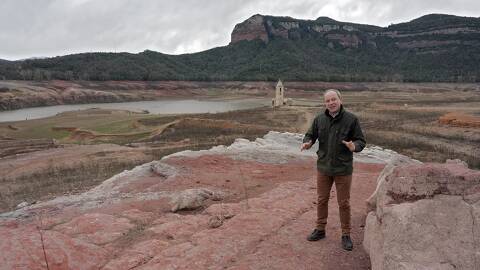Catalonia Facing Drought: Innovations and Sustainable Solutions
Catalonia, facing growing drought challenges, is firmly committed to seeking innovative solutions to preserve its water resources. With reservoirs at critical levels and increasingly hotter summers, the region is turning to bold initiatives to ensure a sustainable future.
Strict measures have been implemented to regulate water consumption, but beyond the challenges, Catalonia emerges as an example of progress and innovation. The Hotel Samba in Lloret de Mar is a key player in this transformation. By recycling water from showers and sinks for use in toilets for the past 25 years, the hotel has saved over 10,000 cubic meters of water in 2023. Additionally, the hotel is exploring new avenues by collaborating with scientists to reuse graywater in plant cultivation, a promising initiative for the future of water management in the region.
En invierno, el hotel suelen frecuentarlo deportistas y jubilados. Derechos de autor euronews
Alongside these private initiatives, the region is investing heavily in advanced technologies such as desalination and water regeneration plants. The El Prat de Llobregat desalination plant, operating at 100% capacity, supplies 25% of the region's demand for drinking water. Similarly, water regeneration plants show promising potential to increase water availability while supporting natural ecosystems.
Jeremy Wilks en el embalse de Sau en Cataluña. Derechos de autor euronews
These efforts are essential to ensuring a prosperous future for Catalonia, especially in the context of global climate change. Local authorities plan to invest massively in projects to increase water reuse to 70% by 2040, demonstrating their commitment to sustainable water management.
La desalinizadora funciona al 100 % de su capacidad. Derechos de autor euronews
Although challenges persist, such as the urgent need for precipitation, Catalonia is on the path to resilience thanks to its ingenuity and dedication to finding sustainable solutions. The story of the Hotel Samba and other private initiatives demonstrate that even in the face of seemingly insurmountable challenges, the region can learn to thrive in a drier but more sustainable future.



